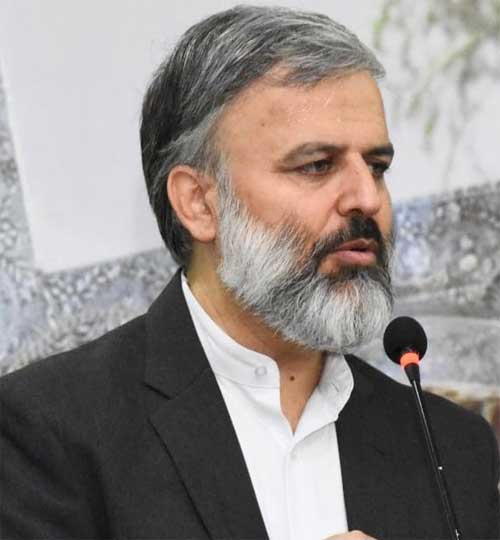Shabbar Naqvi
KARACHI: The Financial Daily International interviewed Safdar Sajjad, Executive Director Sunridge Foods. The following are the excerpts from that interview.
Q: The ‘Farm to Fork’ model is gaining momentum as a cornerstone of a sustainable economy. Can you explain how Sunridge Foods has integrated this concept into its operations and the advantages it offers in terms of environmental stewardship and economic viability?
Safdar Sajjad: At Sunridge Foods, we have fully embraced the ‘Farm to Fork’ model as a fundamental part of our operations. We have established a strong partnership with over 1000 farmers, and we prioritize educating them in sustainable practices that ensure long-term livelihoods. Our commitment to the ‘Farm to Fork’ model is ingrained in our ethos. By working directly with local farmers and promoting organic practices, we bridge the gap between production and consumption. This approach not only reduces emissions but also provides fresher and more nutritious produce. Additionally, this model uplifts communities, creates employment opportunities, and strengthens food security. It demonstrates the interconnectedness of sustainability and prosperity.
Q: Balancing efficiency and sustainability is a significant challenge in supply chains. How does Sunridge Foods navigate this delicate equilibrium?
Safdar Sajjad: Achieving efficiency and sustainability simultaneously is indeed crucial. At Sunridge Foods, we leverage advanced technologies such as predictive analytics and IoT sensors to optimize production and distribution processes. This allows us to minimize waste and resource usage. Furthermore, our commitment to local sourcing reduces transportation-related emissions. By combining technological innovation with community-driven practices, we are able to achieve both efficiency and sustainability in our operations.
Q: Ensuring fairness and equity in collaborations can be complex. How does Sunridge Foods ensure that local farmers are well-compensated and their rights upheld within this model?
Safdar Sajjad: Equity is a fundamental principle of our ‘Farm to Fork’ model. We work closely with farmers to establish transparent pricing mechanisms that accurately reflect their efforts and ensure fair compensation. Additionally, we invest in training programs that empower farmers with knowledge about sustainable practices, enabling them to improve their yields and income. By fostering an ecosystem of trust and cooperation, we strengthen local economies and promote an inclusive supply chain.
Q: Looking ahead, how do you envision the scalability of the ‘Farm to Fork’ model, and what role can partnerships play in its wider adoption across industries?
Safdar Sajjad: The scalability of the ‘Farm to Fork’ model relies on collaboration. At Sunridge Foods, we actively engage in partnerships with academic institutions, NGOs, and other industry players to share our insights and co-create best practices. Through cross-sector collaborations, we can amplify the impact of the ‘Farm to Fork’ model and adapt it to different contexts. By collectively envisioning sustainable supply chains, we can drive systemic change that benefits businesses and the environment.
Q: As we conclude, could you share a compelling example of how the ‘Farm to Fork’ model has not only benefited Sunridge Foods but also brought about positive change in a local community?
Safdar Sajjad: In a partnership with a rural community, we implemented the ‘Farm to Fork’ model for wheat production. By providing farmers with access to modern farming techniques, high-quality seeds, and fair prices, we witnessed a remarkable increase in yields. This uplifted not only the farmers’ livelihoods but also instilled a sense of pride and self-reliance within the community. This example showcases the transformative power of sustainable supply chains and reinforces our commitment to continue on this journey.




